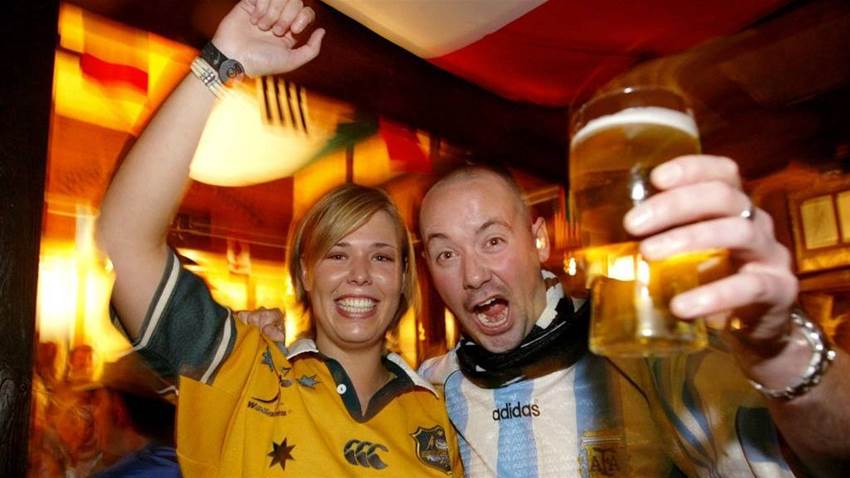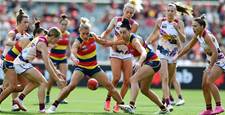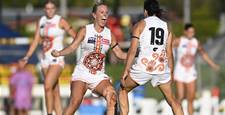You certainly can't get scooners or COVID-19 from the communal bar nuts, but the social media platform's new research suggests many Aussies no longer care.
Twitter's 'Sports Fandom Research' presents regular tracking of how the platform influences sports culture around the world, which given there are 4.6 million active tweeters Australia-wide, is unsurprisingly substantial.
But can a news feed of strangers and 280 characters or less ever truly replicate the time-honoured sense of community that spawned from your local?
Are Twitter wars secretly the Gen Y equivalent of a pub brawl? You may not get your teeth knocked out, but when was the last time someone lost their job after a drunken comment down at the pub?
Here's what the platform's research has to say:
"Twitter is the ultimate virtual pub"
Twitter has become the modern meeting place; a virtual space to meet like-minded voices, align with perspectives and feel part of the action.
-
47% of sports fans on Twitter think that being on Twitter during the game is like being in a digital pub
-
43% of sports fans on Twitter think it’s a better experience to follow a game on Twitter than at the pub
-
43% feel more connected to the sports fans they meet on Twitter, compared to those they meet at a pub
-
56% of fans on Twitter think the banter on Twitter is part of the fun of watching sport
Twitter changes the way that people engage with sports. Twitter has stood out as the home of sports across all social media.
-
44% of sports fans on Twitter check the platform first for any type of live sports news before traditional channels
-
48% of sports fans on Twitter are serial scrollers - reading commentary while watching a game
-
49% of fans on Twitter say that being on Twitter during the event adds to the experience
-
35% of sports fans on Twitter said they use Twitter to engage with live sport events before they start
A raise or a follow back? (research may be pre-COVID)
-
Nearly half of fans would rather get a follow back from a sports star than a raise at work
-
Two in five sports fans who use Twitter would get a Tweet tattooed on themselves if they were able to meet their favourite sports star
-
More than half of sports fans would rather get a follow back from a sports star than their autograph
-
61% of sports fans on Twitter agree that Twitter is where you can share opinions on strategy and tactic
A fractured social climate
What the research does suggest - other than a rather blase attitude towards lifetime inking decisions (nothing you wouldn't also see at the pub) - is that as Australians spend more time than ever within the confines of an electronic device, our attitudes towards socialising also change.
We can see this spelled out in the attendance decline across almost all of the nation's national sporting codes. If you ever went to a pub in the 70s, you'd also notice they're not exactly the raving, sweaty bloke-fuelled icons of Australiana they used to be either.
But is this necessarily a bad thing? Twitter presents a more globalised and accessible, albeit sterilised, form of social interaction that enhances diversity.
There weren't many women's sports traditionally played on the big screen down at the local pub, however, Twitter has helped boost the profile of and participation in women’s sport in Australia:
-
84% of fans follow a women’s sport league on Twitter
-
51% of sports fans who use Twitter agree it is helping them to find out more about women’s sport
-
64% of sports fans who use Twitter are interested in women’s sport
-
3 in 5 sports fans agree they want to see more women’s sport played
Perhaps most newsworthy, during COVID-19 restrictions, Twitter has been instrumental in providing a place for sports fans to convene, reminisce and discuss.
-
Nearly half (47%) of sports fans on Twitter say the platform has been a saviour during the absence of live sports
-
48% of sports fans on Twitter agree the platform has eased the pain of the absence of live sports during COVID-19
-
55% of sports fans on Twitter agree that if sports are played behind closed doors, following on Twitter is the next best thing
Ultimately Twitter's success is just one of a myriad of changes of the guard occurring in the sports arena, from the decline of traditional broadcasters to the disappearance of the local publican.
How you feel about that may depend a little on your penchant for beer and nuts.
Related Articles

So-called expert golf tips for this week

Comp winner's snaps













